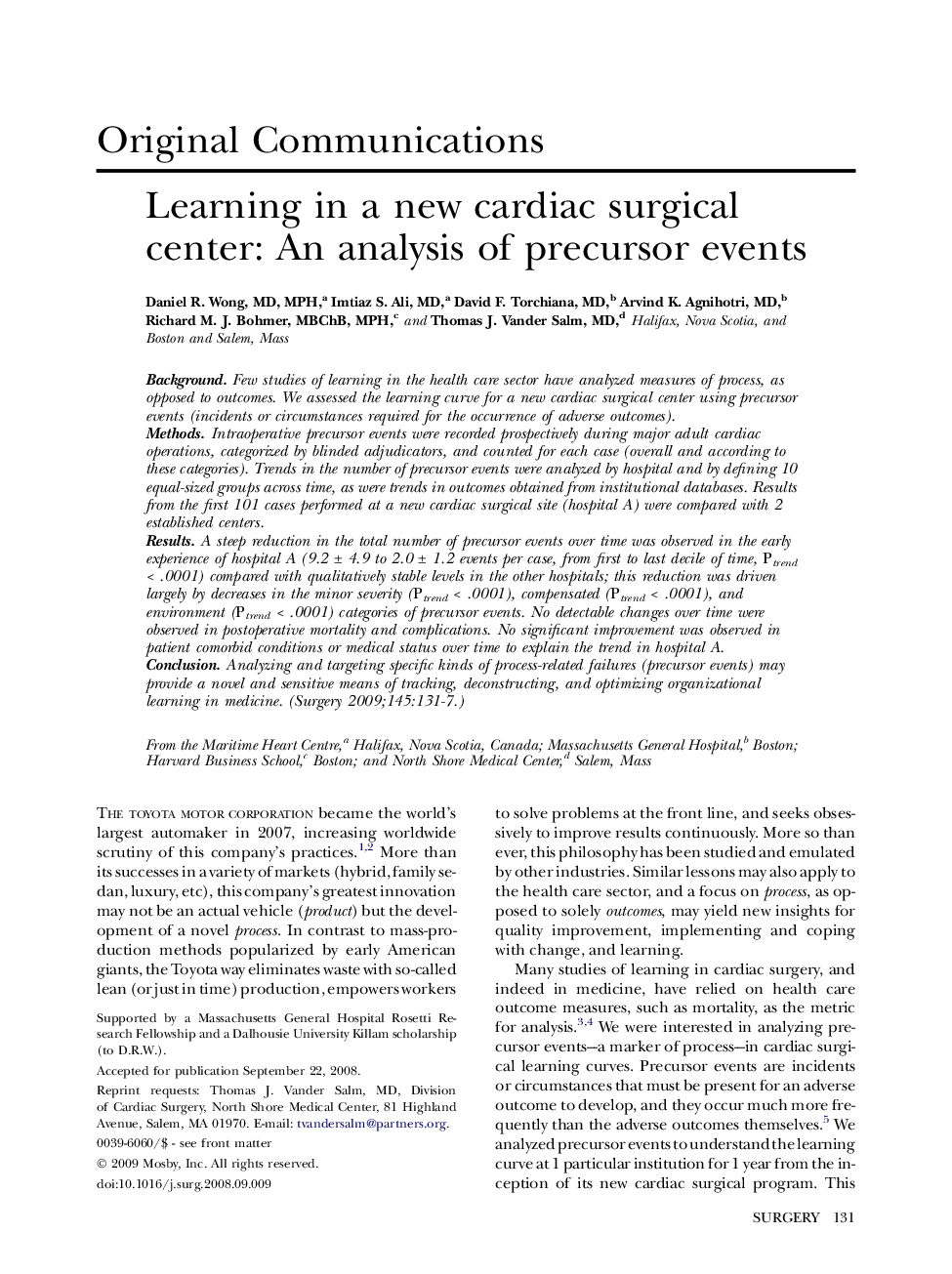| Article ID | Journal | Published Year | Pages | File Type |
|---|---|---|---|---|
| 4309135 | Surgery | 2009 | 7 Pages |
BackgroundFew studies of learning in the health care sector have analyzed measures of process, as opposed to outcomes. We assessed the learning curve for a new cardiac surgical center using precursor events (incidents or circumstances required for the occurrence of adverse outcomes).MethodsIntraoperative precursor events were recorded prospectively during major adult cardiac operations, categorized by blinded adjudicators, and counted for each case (overall and according to these categories). Trends in the number of precursor events were analyzed by hospital and by defining 10 equal-sized groups across time, as were trends in outcomes obtained from institutional databases. Results from the first 101 cases performed at a new cardiac surgical site (hospital A) were compared with 2 established centers.ResultsA steep reduction in the total number of precursor events over time was observed in the early experience of hospital A (9.2 ± 4.9 to 2.0 ± 1.2 events per case, from first to last decile of time, Ptrend < .0001) compared with qualitatively stable levels in the other hospitals; this reduction was driven largely by decreases in the minor severity (Ptrend < .0001), compensated (Ptrend < .0001), and environment (Ptrend < .0001) categories of precursor events. No detectable changes over time were observed in postoperative mortality and complications. No significant improvement was observed in patient comorbid conditions or medical status over time to explain the trend in hospital A.ConclusionAnalyzing and targeting specific kinds of process-related failures (precursor events) may provide a novel and sensitive means of tracking, deconstructing, and optimizing organizational learning in medicine.
